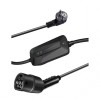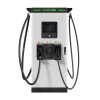Trademarks | Patents | Copyright | Registered Designs
The following questions and answers contain general information about the intellectual property laws of the Hong Kong Special Administrative Region. None of these questions and answers constitutes legal advice. Always consult a suitably qualified lawyer on a specific problem or matter. Bird & Bird assumes no responsibility for the information contained below and disclaims all liability in respect of such information.
What are intellectual property rights?
Intellectual property rights are intangible property rights and for protection purposes, such rights are separated into distinct categories such as trade marks, patents, copyright and designs. Some intellectual property rights require registration whilst others do not.
The Hong Kong SAR has an established legal regime for protecting intellectual property rights which meets, and in such areas exceeds, international standards. The owners of certain intellectual property rights are granted monopoly rights to use and exploit their rights and prevent others from using such intellectual property rights without authorisation.
Trademarks
What is a trade mark?
A trade mark is commonly known as a "badge of origin" which enables businesses and consumers to identify the source of goods or services.A trade mark may be registered or unregistered. The Hong Kong Trade Marks Registry administers the system for registering trade marks in Hong Kong and is separate from the PRC Trade Marks Office. Accordingly, a registration in the PRC does not cover Hong Kong and a registration in Hong Kong does not cover the PRC.
Should I register my trade mark?
Generally, yes. It is easier for the owner of a registered trade mark to take infringement action against third parties.
Will a trade mark registration cover all goods and services?
No. The Hong Kong Trade Marks Register is divided into 42 internationally agreed classes of goods and services. It is necessary to file a separate trade mark application in each class for each good or service requiring protection. For example, a retail shop selling its own brand of clothing may have trade mark registrations in class 25 relating to clothing, footwear, headgear and in class 35 for retail services.
What rights are granted by a Hong Kong Trade Mark Certificate?
A proprietor of a registered trade mark has the exclusive right to use the trade mark on and in relation to the goods or services in respect of which the trade mark has been registered. The registered proprietor has the right to prevent an unauthorised person from using an identical mark or nearly resembling mark on identical goods or services or on goods or services of the same description where such use would result in a likelihood of confusion
What is the procedure for registering a trade mark and how long does it take?
Trade mark applications are processed in Hong Kong in much the same way as many other countries throughout the world. once the application has been filed, the first step is for the Registry to examine the application to determine whether it is inherently registrable (i.e. whether it meets all the registrability requirements specified by the Hong Kong Trade Marks Ordinance) and secondly whether it conflicts with any existing registrations or pending applications. If the trade mark can be accepted for registration, the next stage is to advertise the application in the Government Gazette. The purpose of this advertisement is to give third parties the opportunity to object to the application. At the end of the opposition period, the applicant can apply for a Certificate of Registration. The whole process generally takes between one and two years.
Does a trade mark registration last forever?
A trade mark registration lasts for 7 years and is renewable thereafter for 14 year terms. once a trade mark has been registered, it is possible for the proprietor to have exclusive rights to such mark forever (provided that certain conditions are satisfied, including the payment of renewal fees).
I have been using my trade mark for 10 years but I have never registered the mark with the Hong Kong Trade Marks Registry. Can I stop others from using it?
Yes, although it is less straightforward than if the mark was registered. It is possible to protect your right to use your unregistered trade mark under the law of passing-off. However, you must prove, amongst other things, that you have goodwill associated with the unregistered trade mark; that a misrepresentation has been made by the third party and that such party's use of your unregistered mark will cause or is likely to cause damage to you.







